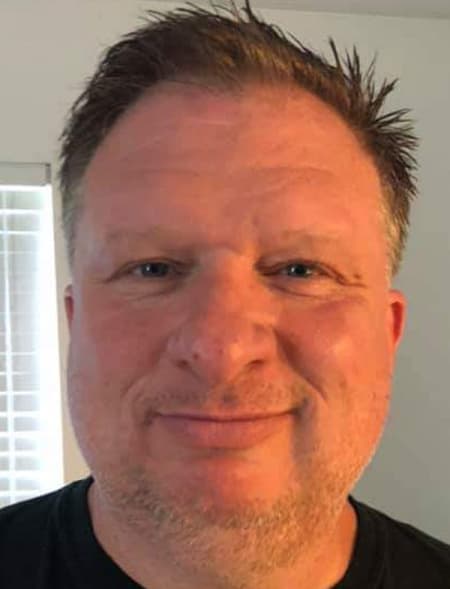An act of service.
That is how Hubert Davis describes his role as North Carolina’s basketball coach.
Not only is he serving the players on his roster, but the 51-year-old Davis is carrying on what Dean Smith, Bill Guthridge, and Roy Williams built and maintained too.
Davis is a man of gratitude. He always gives thanks, often publicly. He loves his players, his faith, and the sport of basketball. And he loves being the head coach at UNC, with his deep roots in its impressive history, and his emotions always firmly planted on his sleeves.
“I'm not sitting up here right now without Coach Williams,” Davis said the day before Carolina’s win over St. Peter’s in the Elite Eight. “He gave me a chance and an opportunity to be the next head coach, to lead this program, to be a part of this team. And it's very important that we give everything to the players, but it's very important for Coach Smith and Coach Guthridge and Coach Williams, I really want them to be proud. Just really important to me.
“And I want every player that played for Coach Smith, Coach Guthridge and Coach Williams, I want them, whether it's in person, TV, highlights, I want them to be able to identify and go, that's the Carolina I went to. It's really important for me that this program, with my own personality in my own shoes, looks exactly like the program that Coach Smith, Coach Guthridge, and Coach Williams ran.”
The passion that rolls off Davis’ tongue is felt through those words. It is unmistakable, and absolutely genuine. His unique connection to Carolina basketball has marked most of his years on this earth.
His uncle is UNC legend Walter Davis, who graduated in 1977 after helping to lead the Tar Heels to the national championship game, in which they lost to Marquette, and he won a gold medal in the 1976 Olympics.
Young Hubert was around those teams and grew to know the players, including Phil Ford in some capacity, for the last 46 years.
In addition, Davis has known Carolina basketball for even longer, soaking in its DNA as it morphed into his own, serving as one little cog in its lore as a player from 1988-1992, and then nine years as an assistant coach under Williams, and now as its curator charged with keeping Carolina in its right perch as Carolina.
The line to Davis’ daily mission begins there.
“Taking this job was – it was an act of service for me. It just was,” Davis said. “It was more than wins and losses. It was being put in a position to give these kids everything I have gotten from Coach Williams and Coach Guthridge, and everything that the coaches have given the North Carolina players over the last 18 years."
He certainly served as a player.
Davis played in 137 games as a Tar Heel, winning a pair of ACC Tournament championships and helping the Heels reach the 1991 Final Four. He scored 25 points that evening in a loss to Kansas.
He scored 1,615 points, an average of 11.8 per game, and still holds Carolina’s record for career three-point percentage at .435, as Davis was 197-for-453 from beyond the arc. And when the games mattered the most, Davis played his best.
*************************************************************************************
And Remember, for just $8.33 a month, YOU CAN BE AN INSIDER, TOO!!!
*************************************************************************************
The native of Burke, VA, averaged 18.5 points over his final eight NCAA Tournament games. He averaged 21.1 points per contest as a senior and was a second-team All-ACC performer. His career-high as a Tar Heel? How about 35 points versus Duke in 1992.
With such a stout resume, and given his life-long connections to all things Carolina blue, one would think being in his current post is like living a dream. Perhaps it is to a degree, but Davis appears to not see things that way because he might believe it then becomes somewhat more about himself.
“I don't know if it's living a dream,” he said. “I'm just overwhelmed with thankfulness. I think about the experiences that I've been able to have. I had always dreamed about being part of the program. And to think that I got to play for them, to think that I got to come back and be an assistant coach, and now I'm a head coach of North Carolina.”
He served during a 12-year career in the NBA.
Davis was always pushing North Carolina in the league. It was a bragging rights thing, and he almost always had something to boast about. Plus, Davis going from unheralded recruit to spending more than a decade in the league was his way of exemplifying the value in the Carolina basketball experience.
If Hubert Davis could play for Dean Smith and stick for so long in the NBA, then that program had no peers when it comes to player development, which allowed so many Tar Heels comfortable homes at the next level. Davis was an archetype of the Carolina way.
He served as an assistant to Williams for nine years, most of which he was also the JV coach. Davis wasn’t exactly a novice when it came to running a team when named Williams’ replacement April 6 of last year.
Coaching the JV program, Davis had to write practice plans, call sets on both ends of the court during games, make substitutions, deal with the dynamics of a locker room, and even work the officials some. A highly successful player at Carolina, who had a long NBA career, gave back to his school by investing time into a bunch of undersized business, dentistry, political science, and communications majors on the hardwood.
Davis cut his teeth with those teams, and some of the experiences paid off this past season. For example, late in a win over Duke in the national semifinals.
“When Caleb (Love) was at the free-throw line and we were up by two, I told the assistants, ‘If he makes the first one, I'm going to call timeout,’” Davis said. “And the reason – well, you might ice your player. I was, I'm calling timeout. The reason I called timeout I was in the same situation as a JV coach.
“We were playing a prep school team and I decided not to call a timeout. He made the first one. I didn't call timeout. He missed the second one. They came down and I did not talk to them about when to foul, the process defensively, what we're doing on a made or missed shot. They came down hit a 3 and we lost in overtime.”
Davis did it again when he couldn’t decline Williams’ request he take the keys to the fabled program, much like Williams couldn’t turn down Smith a second time in 2003. It was an act of duty to Williams, as it was with Davis.
So here he is, having completed year one at the helm with a 29-10 record and program-altering run to the national championship game. The Tar Heels lost nine games by an average of 16.9 points before winning five NCAA Tournament games and nearly cutting down the nets.

Davis’ service to the team, the program, and the men whom he honors daily, wouldn’t allow him to change the annual goals for the Tar Heels. That’s why he so vehemently rejected the notion they were Cinderella when national media kept asking about it in New Orleans. Davis isn’t wired that way.
Prior to the season starting, Davis put a photo of the Superdome in New Orleans in each players’ locker. He wanted the kids to see the finish line, where they would reap the reward for their effort and discipline through a long season. And even with the blowout losses, Davis never wavered, even though his players weren’t sure what to make of it at the time, especially the whole Superdome photo deal.
“It's crazy to think about,” sophomore guard RJ Davis said. “Definitely a surreal moment. It just shows how much confidence and belief he had in us at the beginning of the year. He told us we were going to be in this position so we might as well just tell our parents to book their tickets now to New Orleans.
“So, looking back on it, and now actually being in this position is something that I'll cherish forever. It's definitely a great feeling right now.”
Belief is a powerful thing, and it has long been one of the staples of Carolina basketball.
Smith, who retired in 1997 as the all-time leader in victories with 879, always thought they were going to win, and no matter how challenging the sequence in a game, or if the Tar Heels trailed by 15 points with seven minutes remaining, he always told them they were going to win.
Guthridge went to a pair of Final Fours in his three years after replacing Smith, and he was seemingly the calmest and coolest person in the building in the tensest of moments.
And while Williams exuded a fire in the belly different from Smith and Guthridge, he also had a deep belief in his players, to which he articulated to them regularly. To that, UNC won more NCAA Tournament games, including three national titles, than any other program during his 18 seasons.
Despite being the head of the program for just one year, Davis shares a similar characteristic with those three UNC legends.
“His experience is a lot,” said senior wing Leaky Black. “Because, when we get rattled, he just reminds us he's been in that position before. He just gets us under control. We're not too big for the moment. All the work that we put in with him is for that moment… He knows how to get us under control.”
Davis faced such a situation heading into overtime in the second round of the NCAA Tournament versus defending national champion and East Region top seed Baylor. Carolina had just blown a 25-point lead over the final 10 minutes and was short two starters when regulation ended.
But as Davis kneeled before the team, he reminded them about the opportunity they were facing. It was an uplifting message, so the Tar Heels responded by closing out the Bears and marching on to the Sweet 16.
Hubert Davis spent the last year serving the ghosts and lore of Carolina basketball. He spent the year serving his players, cherishing their trust in him, knowing that together they could achieve wonderful things.
And Davis also served himself. He wants UNC to win as much as anyone, and he has 46 years of Carolina blue blood rolling through his veins.
Year one is in the books, and it had a little bit of everything, perhaps most notably Davis’ commitment to his purpose.
